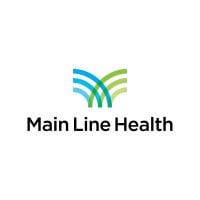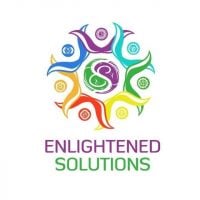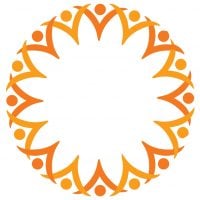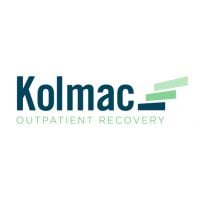
Kolmac Outpatient Recovery Centers - Bryn Mawr
Drug Rehab Center in Bryn Mawr, Pennsylvania
- Substance Abuse
- Drug Addiction
- Alcoholism
Kolmac Outpatient Recovery Centers - Bryn Mawr is an Addiction Treatment Facility in Bryn Mawr, PA offering a range of care levels and accredited by LegitScript and CARF, which accepts Private Health Insurance and is affiliated with Kolmac Outpatient Recovery Centers for additional support and resources.
About
Kolmac Outpatient Recovery Centers - Bryn Mawr is a reputable addiction treatment facility located in Bryn Mawr, Pennsylvania. They hold the distinction of being accredited by both LegitScript and CARF, which speaks to the high quality of their services. Kolmac Outpatient Recovery Centers - Bryn Mawr specializes in providing treatment for alcoholism, substance abuse, drug addiction, dual diagnosis, and opioid addiction. They offer a range of levels of care, including detox, outpatient, intensive outpatient, drug rehab, and aftercare support. This comprehensive approach allows individuals to receive the appropriate level of care based on their unique needs and circumstances.
Kolmac Outpatient Recovery Centers - Bryn Mawr prioritizes providing effective and personalized services to individuals struggling with addiction and substance abuse. They offer detoxification services to help individuals safely and comfortably withdraw from substances. Furthermore, their outpatient and intensive outpatient programs provide structured treatment and therapy sessions, enabling individuals to address the underlying causes of their addiction and develop coping skills. Additionally, Kolmac Outpatient Recovery Centers - Bryn Mawr recognizes the importance of aftercare support and offers ongoing assistance to individuals even after completing their primary treatment. Overall, they strive to provide a comprehensive and individualized approach to addiction treatment to support long-term recovery.
Genders
Ages
Modality
Additional
Accreditations

LegitScript

CARF
The Commission on Accreditation of Rehabilitation Facilities (CARF) is a non-profit organization that specifically accredits rehab organizations. Founded in 1966, CARF's, mission is to help service providers like rehab facilities maintain high standards of care.
Conditions and Issues Treated
Recovering from substance abuse is an essential part of a healthy life for many people. It’s a long and challenging process, but it can be worth it in the end if you manage to get through all parts. Detoxifying your body, rehabilitation after that time passes or when needed (depending on what type), and then recovery while also receiving therapy support throughout this entire process.
A standard route to starting recovering from substance abuse and addiction is through a detoxification center. There you can completely heal your body and mind and continue on the path of recovery without feeling any of the lingering effects of substances.
Levels of Care Offered
This center offers a variety of custom treatment tailored to individual recovery. Currently available are Aftercare Support, Drug Rehab, Intensive Outpatient, Outpatient, with additional therapies available as listed below.
Intensive Outpatient Programs are similar to partial hospitalization, but they don’t require the patient to go home each night.
This means that while they have to attend meetings and receive other types of help at the facility, addicts are allowed to keep their jobs or continue with school without having to miss their classes or work opportunities. This is a great option for those who can’t take time away from their jobs or schedules to attend a treatment program.
During this type of program, the addict will be required to meet with counselors and other types of professionals throughout the day. This will help them stay on track and prevent them from relapsing after they leave the facility.
An outpatient treatment program is set up to help with alcohol or drug addiction or a co-occurring disorder. The treatment must attend the treatment facility for their therapy and other programs but return home each night. The frequency of mandatory attendance decreases after much of the treatment program is complete. The treatment programs are monitored by the treatment facility and case managers who work for a judge or judge’s office. A treatment program may be performed out of a treatment facility, treatment clinic, or treatment center.
The benefits of outpatient treatment programs are many. One of the most beneficial treatment programs is that it allows treatment for clients who cannot afford or may not be able to attend treatment at a treatment facility, treatment center, or treatment clinic full-time. Another benefit of treatment programs is that they reduce crime rates because treatment allows people to treat their addiction.
Recovering drug addicts need aftercare support when they leave treatment. The support can include guidance through 12-step programs, outpatient rehabilitation programs, and support groups. Aftercare supports the individual in their desire to maintain sobriety by reducing relapse risk with positive choices.
The success of drug treatment does not end when the addict leaves the rehabilitation center. There is no such thing as a “one and done” type of rehabilitation process. Recovery is a lifelong journey that begins with treatment and continues by the addict committing to outside support groups or drug rehab programs.
When choosing a program, it is crucial to choose one that will provide long-term aftercare support. This ensures that you have the tools you need to sustain your recovery.
Therapies & Programs
The therapies typically involve all family members, potentially including siblings, children, and parents who play a role in their daily lives. These sessions can be essential because they address past issues that may have affected an addict or alcoholic’s recovery process. They provide support during this time when it is needed most!
A family therapy session, often called a family meeting or intervention, is a necessary process that helps loved ones of addicts see their situation in a new light. It’s also one of the most challenging things families will ever have to do when they’re facing a loved one battling addiction or alcoholism.
Group therapy sessions provide recovering addicts with a chance to cope with everyday situations that many face. Group therapy sessions are held in rehab facilities, clinics, churches or community centers that offer drug addiction treatment.
People who attend these groups are encouraged to voice their feelings and support other addicts in recovery. This helps group members strengthen their own recovery program while cheering on others who are struggling with sobriety.
Cognitive Behavioral Therapy (CBT) is a highly effective treatment option based on the idea that how we feel, think and act all interact together. Our thoughts determine our feelings and behaviors; our feelings affect our thoughts, and our behaviors change our thoughts and feelings. CBT helps people explore their thoughts for problems (or false beliefs) that influence their mood and actions. By examining their thoughts and beliefs, people can recognize distorted or irrational and modify them to more realistic, positive ones. CBT is very goal-oriented, which means that the therapist and patient work together on a specific problem while learning to become more adept at solving future problems.
CBT works well with a broad range of people, including those with depression, anxiety disorders, eating disorders, and problems with anger. In addition to helping a client focus on thoughts that can be changed, CBT also allows them to take an active role in their treatment. This is called a collaborative approach because both patient and therapist work together to produce the best possible results.
CBT is based on cognitive learning theory, which says that our behavior is a learned response to our environment. Cognitive refers to thoughts and beliefs, while behavioral relates to actions or deeds. CBT helps people learn ways of behaving to improve their quality of life by focusing on specific problems or goals they want to achieve. Sometimes, CBT is used alone; other times, it is combined with medications or brief counseling techniques such as solution-focused and motivational interviewing to achieve optimal results for the patient.
Payment Options Accepted
For specific insurance or payment methods please contact us.
Is your insurance accepted?
Ask an expert, call (888) 674-0062
Kolmac Outpatient Recovery Centers Associated Centers
Discover treatment facilities under the same provider.
- Kolmac Clinic - Burtonsville in Burtonsville, MD
- Kolmac Outpatient Recovery Centers - Morrisville in Morrisville, PA
Learn More About Kolmac Outpatient Recovery Centers Centers
Additional Details
Specifics, location, and helpful extra information.
Bryn Mawr, Pennsylvania 19010 Phone Number(888) 368-2153 Meta DetailsUpdated November 25, 2023
Staff Verified
Is Kolmac Outpatient Recovery Centers – Bryn Mawr a LegitScript Verified Treatment Facility?
According to our most recent records, we have found this center to be LegitScript verified.
Patient Reviews
There are no reviews yet. Be the first one to write one.
Bryn Mawr, Pennsylvania Addiction Information
Pennsylvania ranks 14th in the nation for drug-related deaths. More than 10% of all deaths in Pennsylvania have been related to drugs and alcohol. 30% of Pennsylvania youth reportedly drink alcohol monthly, with more than 20,000 teenagers having an alcohol problem. The rate of opioid misuse in Pennsylvania is double the national average.
Treatment in Nearby Cities
- Kittanning, PA (227.8 mi.)
- Oil City, PA (249.6 mi.)
- Haverford, PA (1.2 mi.)
- Watsontown, PA (109.4 mi.)
- Punxsutawney, PA (202.2 mi.)
Centers near Kolmac Outpatient Recovery Centers - Bryn Mawr
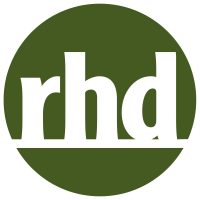

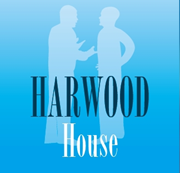
The facility name, logo and brand are the property and registered trademarks of Kolmac Outpatient Recovery Centers - Bryn Mawr, and are being used for identification and informational purposes only. Use of these names, logos and brands shall not imply endorsement. RehabNow.org is not affiliated with or sponsored by Kolmac Outpatient Recovery Centers - Bryn Mawr.


